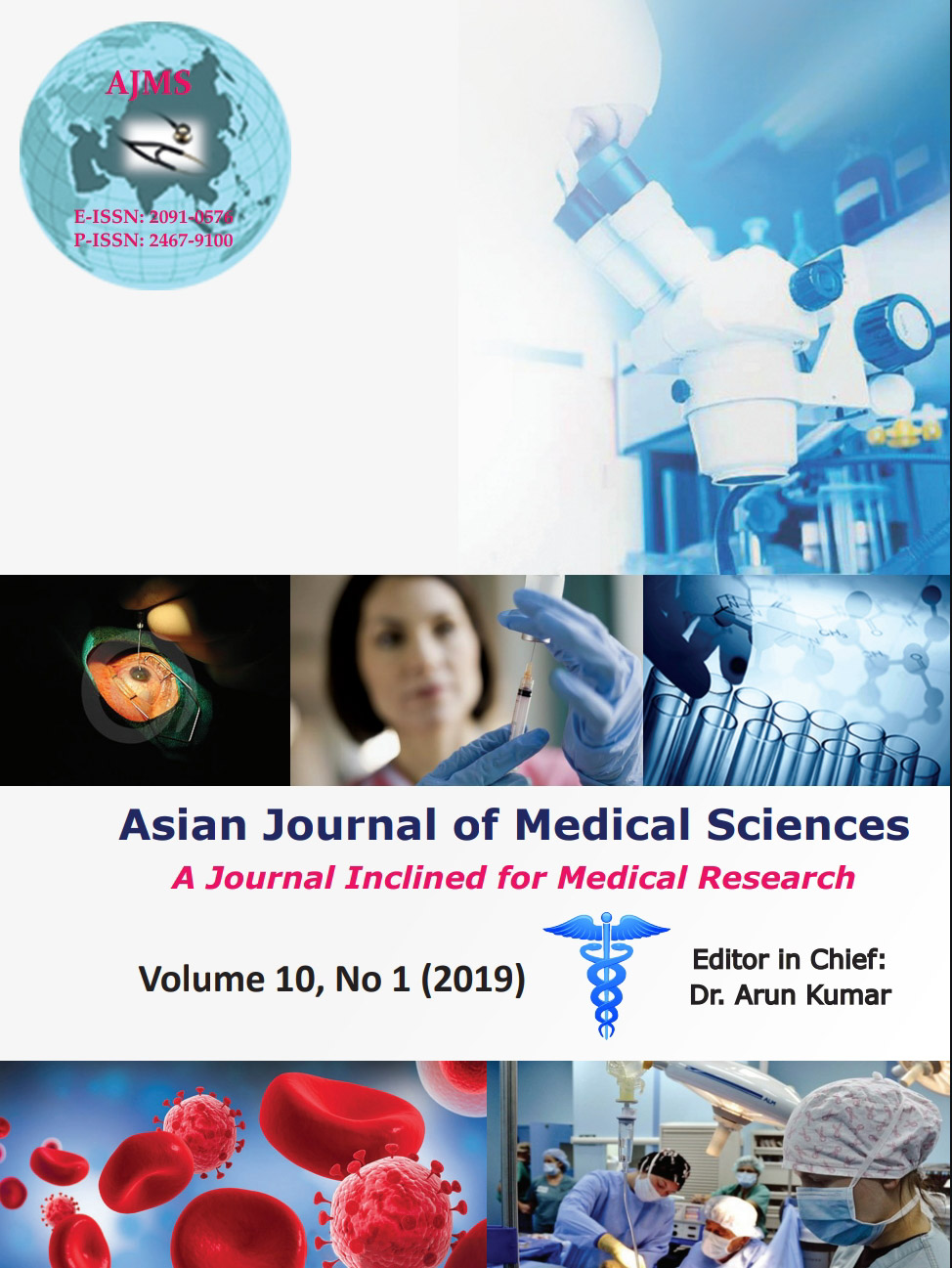The enzymopathy of G6PD deficiency in Jordan: a demographic and biochemical analysis
Keywords:
Glucosephosphate dehydrogenase deficiency, G6PD, ABO blood-group system, Middle east, ArabsAbstract
Background: G6PD deficiency is an inherited X-linked recessive condition leading to insufficient levels of glucose-6-phosphate dehydrogenase, thus causing hemolytic anaemia under certain circumstances.
Materials and Methods: Our study is explorative for cases admitted to Jordan University Hospital. The studied parameters include demographics, clinical manifestations, biochemical markers including Hb level, WBC count, liver enzymes, and blood grouping.
Results: Most of the patients were admitted to the emergency unit (53.13%). Individuals who were Rh-positive represented 57.81%, while patients of AB blood group accounted for 75%. The mean values were 4.81 years (age), 29.06 hours (time-to-hospital admission), 38.10 degree Celsius (temperature), 6.11 gm/dl (Hb), 13242.19 (WBC count), 343.20 U/L (S. ALP), and 50.98 IU/L (S. ALT). There was no significant difference between males and females or between favism-induced versus drug-induced hemolytic episodes. AB and Rh positive blood groups are of a protective effect in relation to liver enzymes. Patients who were admitted to the hospital within 24 hours from having clinical manifestations had a better prognosis.
Conclusion: This study is the first inferential research on G6PD deficiency from the Middle East to explore cases from one of the largest healthcare centres in Jordan. The role of blood grouping should be investigated prospectively.
Downloads
Downloads
Published
How to Cite
Issue
Section
License
Authors who publish with this journal agree to the following terms:
- The journal holds copyright and publishes the work under a Creative Commons CC-BY-NC license that permits use, distribution and reprduction in any medium, provided the original work is properly cited and is not used for commercial purposes. The journal should be recognised as the original publisher of this work.
- Authors are able to enter into separate, additional contractual arrangements for the non-exclusive distribution of the journal's published version of the work (e.g., post it to an institutional repository or publish it in a book), with an acknowledgement of its initial publication in this journal.
- Authors are permitted and encouraged to post their work online (e.g., in institutional repositories or on their website) prior to and during the submission process, as it can lead to productive exchanges, as well as earlier and greater citation of published work (See The Effect of Open Access).




